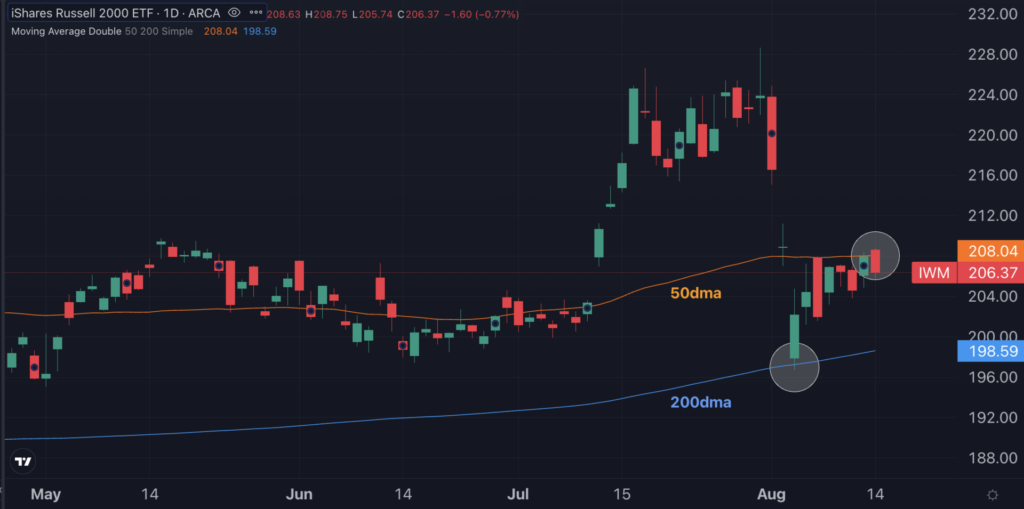Following the early August selloff, small-cap stocks diverged from large caps, shedding light on a potential cooling of the market rotation trend that emerged in July.
The Russell 2000 index, closely monitored through the iShares Russell 2000 ETF Trust IWM, took a steep plunge at the beginning of August, finding crucial support at its 200-day moving average.
Despite this support, the index struggled to break through the resistance of its 50-day moving average, indicating a lack of strong optimism.
On a recent Wednesday, the Russell 2000 reacted negatively to the unexpectedly cool July inflation data, dropping by 0.7% and underperforming its larger-cap counterparts.
This response starkly contrasts with the July surge in small caps following a lower-than-expected June inflation report released on July 11.
Chart: Resistance at the 50-Day Moving Average for Russell 2000

Evaluating Value: Are Small Caps Still Undervalued?
Analyst Jill Carey Hall from Bank of America pointed out that the Russell 2000 currently trades at a price-to-earnings ratio of 15.5x, slightly above its historical average P/E of 15.2x.
Despite this, Hall emphasized that “small caps remain cheap versus large caps,” trading at about a 25% discount to their historical average (relative P/E of 0.74 compared to the historical average of 1.0x).
Michael A. Gayed, CFA, a portfolio manager at Toroso Investments, shared insights on the recent market dynamics.
“We’ve observed small caps shift from a rotation beneficiary to a risk-off asset within a month,” noted Gayed, highlighting the rapid change in market sentiment.
The initial rotation was triggered by a lower-than-expected U.S. inflation figure, which along with positive growth prospects, drove up equity markets.
But with the disappointing July job report redirecting the narrative towards recession concerns, investor appetite for risk decreased, causing small caps to lag behind their larger counterparts once more.
“If small-caps continue to trail behind, as witnessed since late July, it could indicate a stronger risk-off position and suggest that the equity rebound may be deceptive,” Gayed added.
Attend the Benzinga Small Cap Conference
Stay informed about U.S. small-cap stock trends and gain valuable insights from industry experts by joining the Benzinga Small Cap Conference in October.
Secure your attendance by registering at Benzinga Small Cap Conference for a chance to expand your knowledge and network with key players in the small-cap sector.
Now Read:
Image: Shutterstock